How to Control a Modular Synth from a DAW (and Vice Versa)
MIDI and Audio Interfaces for Controlling Modular Synths
There are various ways to control a modular synth from a DAW. Integrating your modular and semi-modular synths into the DAW environment allows you to control, sequence, and automate them just like any other synth, creating a hybrid system. We check out some of the most popular solutions.
How to Control a Modular Synth from a DAW
Controlling a Modular Synth from a DAW: Basics
To control your modular synth from a DAW, you first have to decide between two fundamentally different approaches. The first option is to use MIDI and a MIDI-to-CV interface to generate CV, gate, and trigger signals to control your modular. The other way involves using an audio interface with DC-coupled outputs, which allows for generating analog control voltages. We’ll take a closer look at both options in this article.
Controlling a Modular Synth from a DAW via MIDI
One way to sequence and control a modular synth from a DAW is to use MIDI and a MIDI-to-CV interface. In this case, you’ll be working on the MIDI level in your software, just like with any other MIDI-controlled synth. The MIDI-to-CV interface then translates the digital note and controller messages into analog control voltages and gate/trigger signals.
In the other direction, there are also CV-to-MIDI interfaces that can convert control voltages into MIDI messages that can be recorded and edited in your DAW just like any other MIDI data.
MIDI-to-CV interfaces are available as standalone devices and in Eurorack format. The latter are the most convenient for controlling a Eurorack system, as they allow for easy patching. Most modern MIDI-to-CV interfaces connect directly to your computer via USB, eliminating the need for a separate MIDI interface.
In terms of functionality, MIDI-to-CV interfaces range from simple converters for pitch CV, gate, and perhaps an additional modulation signal (e.g. velocity) to complex devices that support polyphonic voices and/or multiple parameters. Before deciding on a model, consider what exactly you plan to do with it and what capabilities you need – ideally with some room for future expansion.
Behringer CM1A
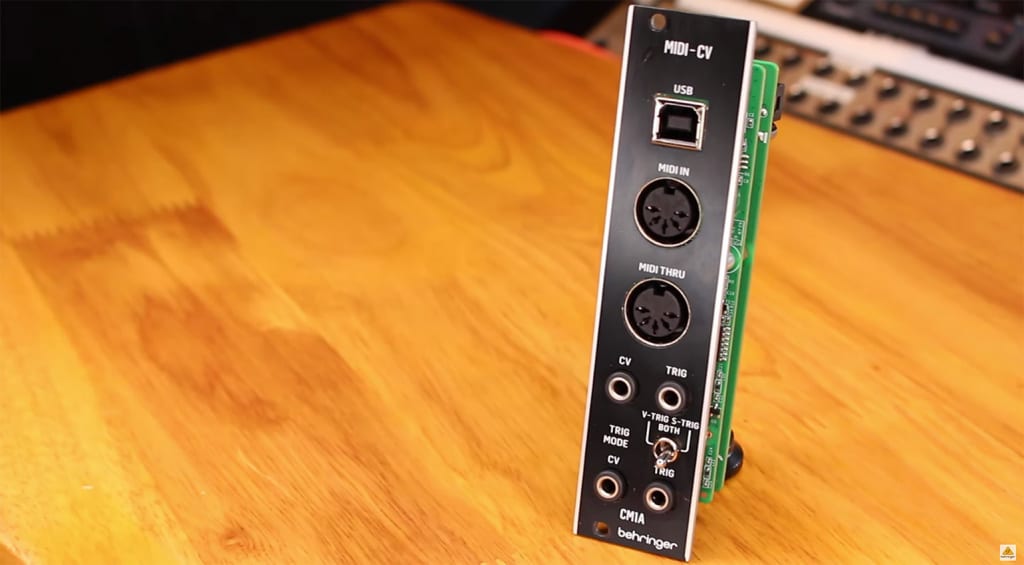
If all you need is some basic control capabilities, Behringer’s bare-bones CM1A* is one of the most cost-effective solutions. With two CV and two gate/trigger outputs, it allows for monophonic or duophonic operation.


Doepfer A-190-3
Doepfer offers various MIDI-to-CV interfaces for controlling a modular synth from a DAW. The A-190-3* outputs a gate signal and up to four analog CVs.

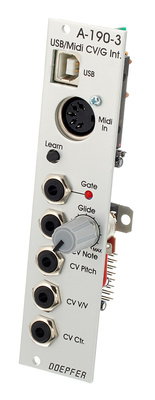

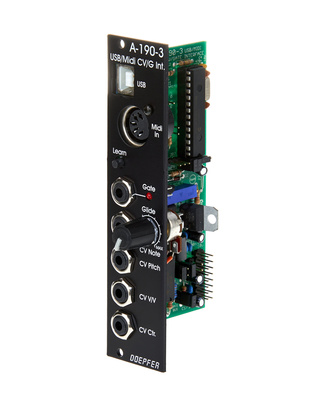
Befaco MIDI Thing V2
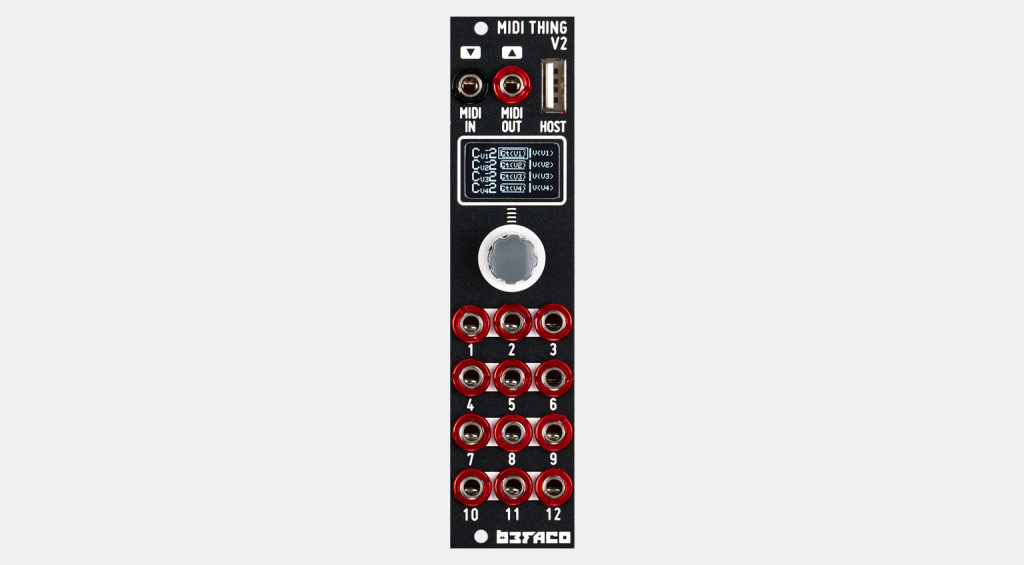
The Befaco MIDI Thing V2* is a versatile MIDI-to-CV interface with 12 outputs, each of which can be configured as Note CV, Gate, Velocity, Channel Pressure, MIDI CC, Clock, Start/Stop, Drum Trigger, LFO, Oscillator, ADSR, or NRPN. Polyphonic applications with up to 12 voices are also possible.


Bastl Instruments 1983
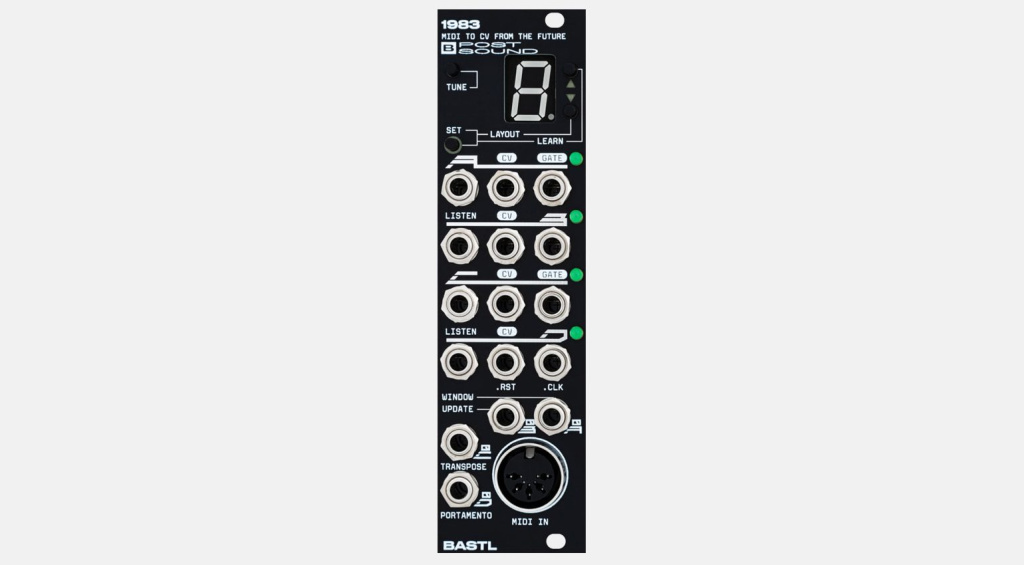
Bastl Instruments 1983* is a 4-channel MIDI-to-CV converter that operates in various polyphonic or monophonic modes. Features include an integrated quantizer and per-channel CV inputs for automatic oscillator tuning.


Hexinverter Électronique Mutant Brain
With no fewer than 12 trigger outputs, Mutant Brain* focuses on drum sequencing. The module also offers four CV outputs. All outputs are configurable using a browser-based tool.

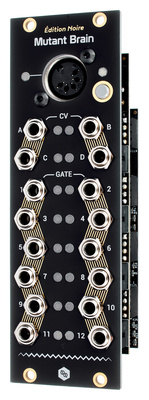
Vermona qMI2
The Vermona qMI2* is a clearly laid-out interface for controlling up to four voices. Each voice has gate, pitch, and two additional CV outputs. In addition, you get a reset output and three clock outputs with a built-in divider.

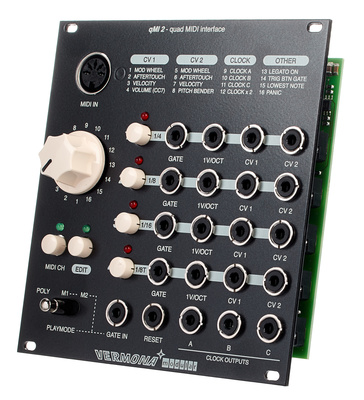
CV-to-MIDI Interfaces
A CV-to-MIDI interface allows you to convert control voltages from your modular system into MIDI data, which you can record and edit in your DAW. While these aren’t nearly as plentiful as MIDI-to-CV interfaces, there are some interesting solutions available.
Befaco CV Thing
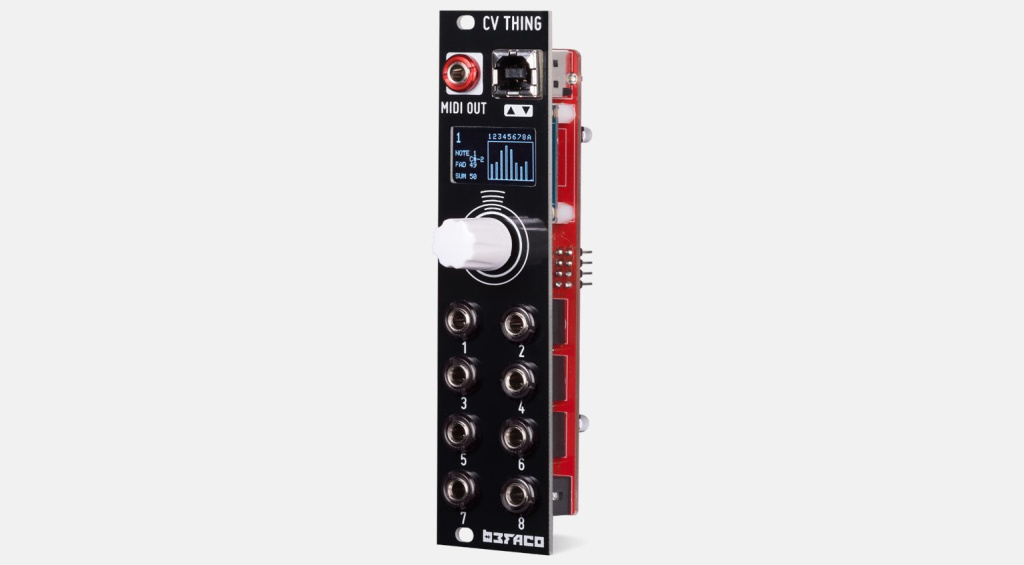
Befaco’s CV Thing* offers eight CV inputs that can be assigned to MIDI messages such as CC, notes, program change, NRPN, and clock. Various configurations can be stored.

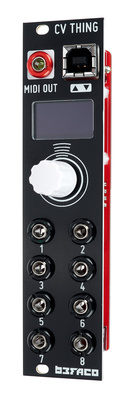
Doepfer A-192-2
The A-192-2* offers two independent CV-to-MIDI interfaces, each with four inputs (gate and 3x CV). Thanks to a MIDI input, the module offers a very useful MIDI learn function.

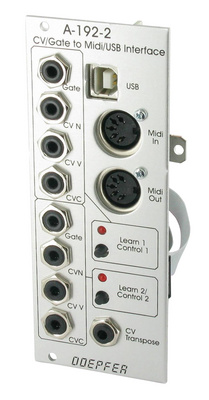
Befaco VCMC
Befaco VCMC* is both a versatile MIDI controller and a CV-to-MIDI interface. The module converts eight CV and gate inputs into freely assignable MIDI messages (CC, note, program change, clock, ST/SP, NRPN). In addition, there are eight sliders and buttons each for manual control.

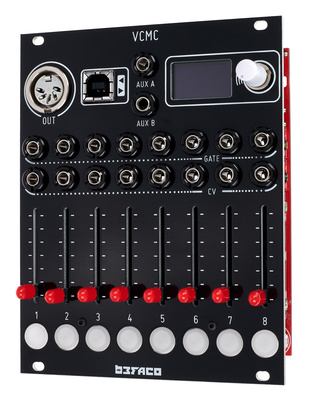
Controlling a Modular Synth from a DAW Using an Audio Interface
The second option for sending CV and gate signals from your DAW to a modular system is to use an audio interface with DC-coupled outputs. Unlike the AC-coupled outputs of most interfaces, DC-coupled outputs allow constant or slowly fluctuating DC voltages to pass through, meaning that they can be repurposed to generate control voltages.
If you want to control multiple parameters in your modular system, make sure to get an interface with as many outputs as possible, as a separate output is required for each CV or gate signal. In other words, each parameter of the modular system that is to be controlled requires its own output and cable. A basic audio interface with only one stereo output won’t get you very far, as it only supports one CV/gate pair. As soon as it gets a bit more complex and you want to control an additional parameter such as velocity, a third output is required. That’s why this solution can unfortunately burn a rather large hole in your pocket compared to a MIDI setup.
The biggest advantage of this method is that it offers a much finer resolution than MIDI. If the goal is precise, “analog” control, a DC-coupled audio interface is usually superior to a MIDI-to-CV interface.
Which Audio Interfaces are DC-coupled?
USB audio interfaces with DC-coupled outputs are available from various manufacturers, including:
- PreSonus (Studio and Quantum series)
- MOTU (all current interfaces)
- Universal Audio Apollo series
Several other manufacturers also offer compatible interfaces, and due to the popularity of modular synths, this number is growing. But not all current interfaces are compatible. Be sure to take a good look at the technical specs before purchasing.
DC-coupled Audio Interfaces: Recommendations
Admittedly, no one in their right mind is going to splurge on an expensive UA Apollo just for controlling a modular synth from a DAW—especially since the integrated DSP isn’t even needed for this. Fortunately, there are also various significantly less expensive solutions.
MOTU M4
With four DC-coupled outputs, the MOTU M4* is perfect for basic modular control.

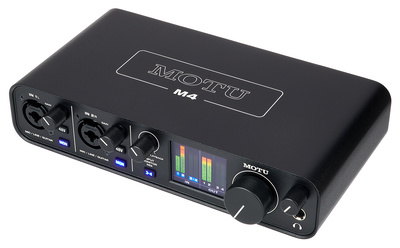
Bitwig Connect 4/12
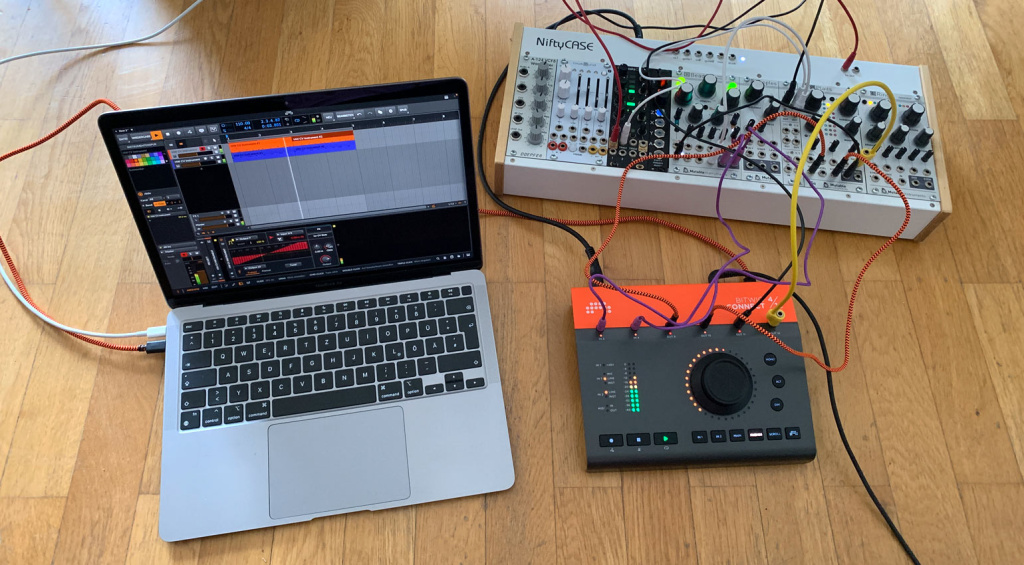
Bitwig is one of the DAWs that comes with built-in tools for controlling modular systems (see below). To complete the system, the company now also offers a matching audio interface. In addition to regular line, microphone, and instrument inputs on the back, the Bitwig Connect 4/12* (read our review here) offers a bunch of DC-coupled inputs and outputs in mini-jack format, allowing for easy integration of hardware modules into the DAW’s modular software environment.

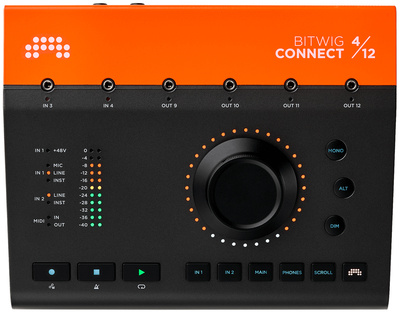
PreSonus Studio 1824c
With eight DC-coupled line outputs, the PreSonus Studio 1824c* allows for fairly extensive control of a modular synth from a DAW. In addition, it offers a wide range of other features such as eight microphone inputs, MIDI, and ADAT expandability. This makes the Studio 1810c a great choice for anyone looking for an interface that can handle all tasks in a small studio, from multi-channel recording to CV. If more CV outputs are required, the ADAT port lets you connect an ADAT expander such as the Expert Sleepers ES-10 (see below).

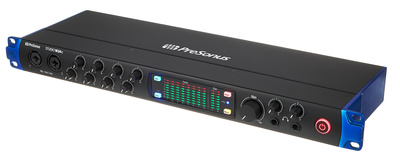
Audio Interfaces in Eurorack Format
If you’re going to purchase a dedicated audio interface for CV purposes, it makes sense to integrate it directly into your Eurorack system for ease of patching. This also eliminates the bulky adapters needed to connect your Eurorack modules to the 1/4” outputs of standard interfaces.
Expert Sleepers has long been the pioneer in this segment, offering comprehensive solutions for controlling Eurorack systems via DAW, including the required software.
Expert Sleepers ES-8 and ES-9
The Expert Sleepers ES-8* offers eight analog outputs and four analog inputs, all of them DC-coupled. You can even add additional inputs and outputs via ADAT or the ES-5 and ES-6 expander modules.
With eight outputs and no less than 14 inputs, the ES-9* is ideal if you want to send a large number of signals from your Eurorack to the DAW. The module also offers a stereo main output and a headphone output.

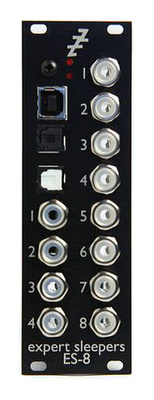

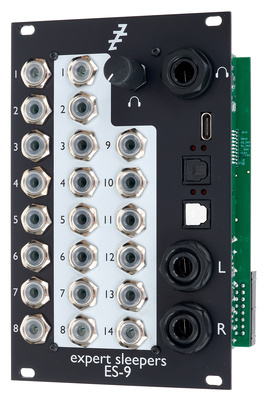
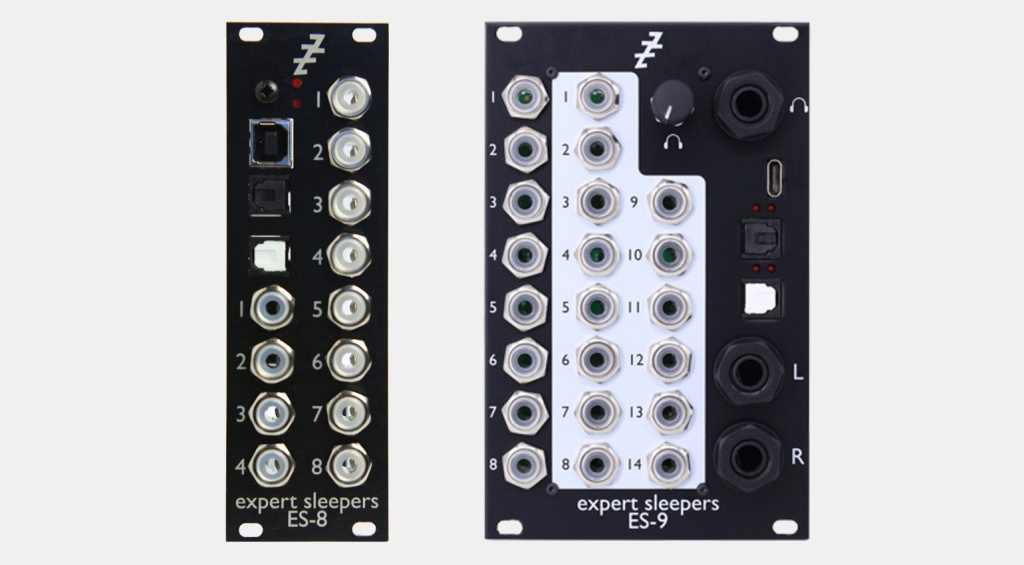
Befaco AC/DC
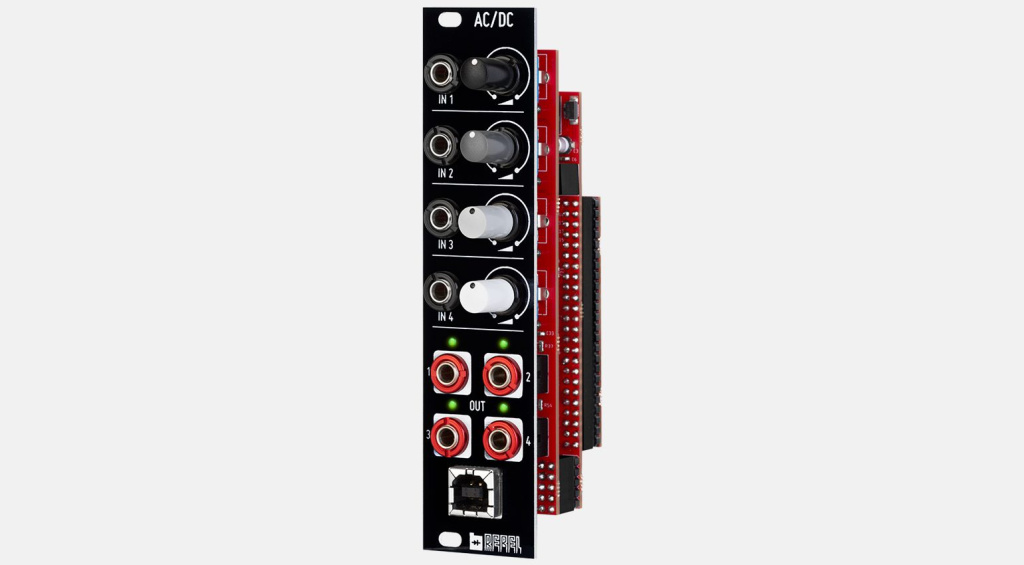
Measuring just 6 HP, the Befaco AC/DC is a particularly compact solution. This USB audio interface offers four inputs and outputs each, all DC-coupled. The Befaco AC/DC is available fully assembled or as a DIY kit.
ADAT-to-CV Interfaces
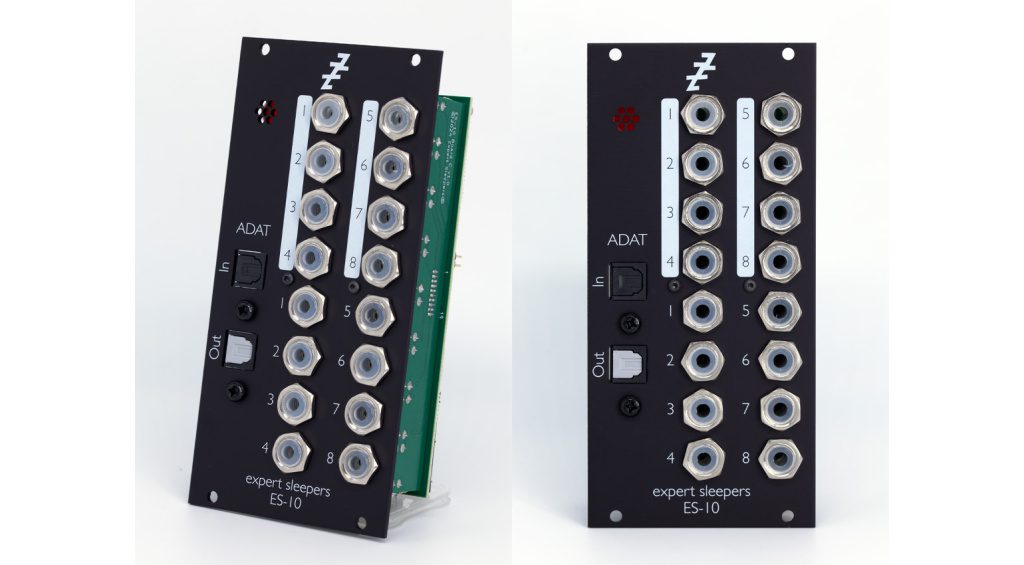
If you already own an audio interface with an optical ADAT Lightpipe port, you can add the Expert Sleepers ES-10* Eurorack module to expand it with eight DC-coupled CV inputs and outputs each. If you’re not using your ADAT port for other things, this is one of the most cost-effective solutions—especially since the analog ins and outs of your interface remain free for their regular tasks.

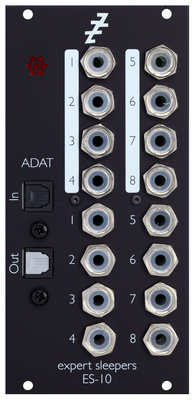
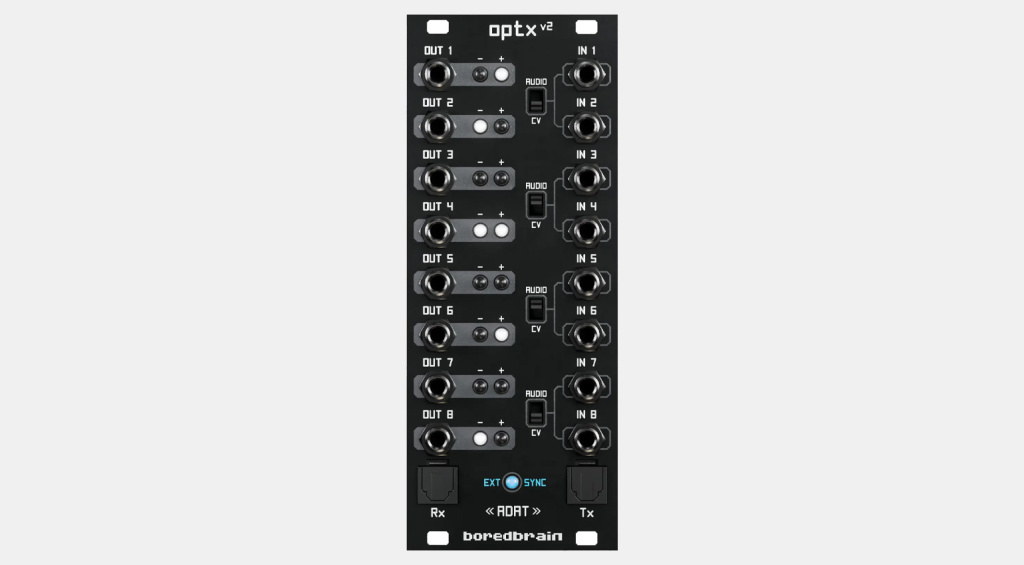
Another ADAT option with eight inputs and outputs each is the Boredbrain optx V2. The inputs can be switched in pairs between audio and CV signals. As with the ES-10, an audio interface with an optical ADAT port is required.
Software for Generating CV
Now that the interface is sorted out, how do you tell it which voltages to generate to control a modular synth from a DAW? Various software solutions are available.
Some DAWs come with built-in CV capabilities. For example, Bitwig Studio includes CV Devices for sending and receiving control voltages via a compatible audio interface. This lets you integrate your hardware modules into Bitwig’s modular software environment (The Grid).

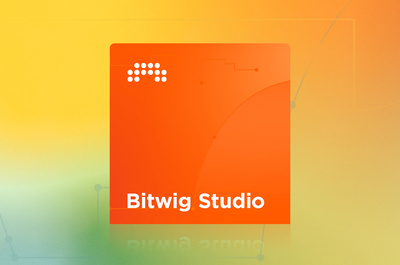
Similarly, Ableton Live also includes a range of CV Tools for sending and receiving CV, gate, clock, and trigger signals.

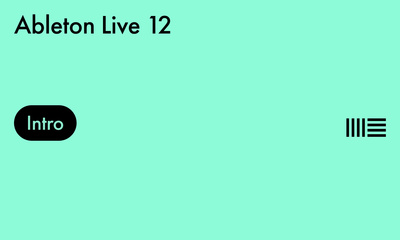

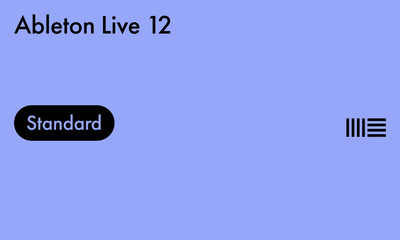

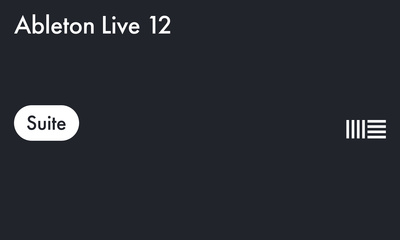
FL Studio’s Fruity Voltage Controller is a plugin for controlling modular synthesizers via CV/gate. It can handle four pairs of outputs.

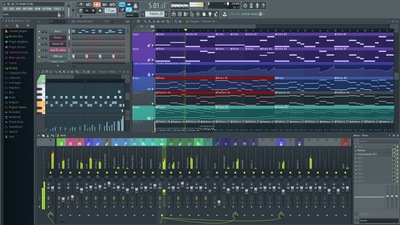

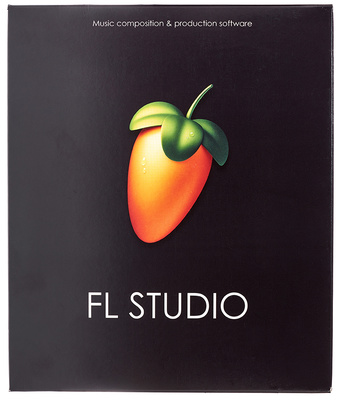

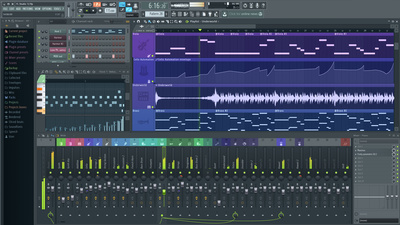
Plugins for Generating CV
In DAWs that do not have built-in CV capabilities, you have to resort to third-party plugins. And this is where Expert Sleepers comes into play once again.
Expert Sleepers Silent Way
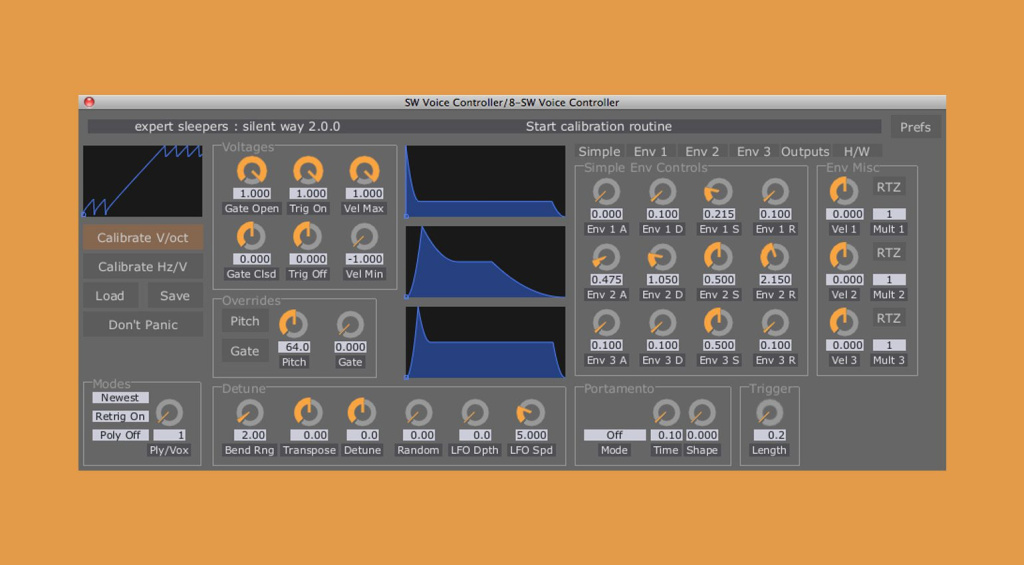
Silent Way is a suite of 18 plugins for controlling a modular synth from a DAW. Silent Way is available for macOS and Windows in AU, AAX, and VST formats.
Native Instruments Reaktor 6
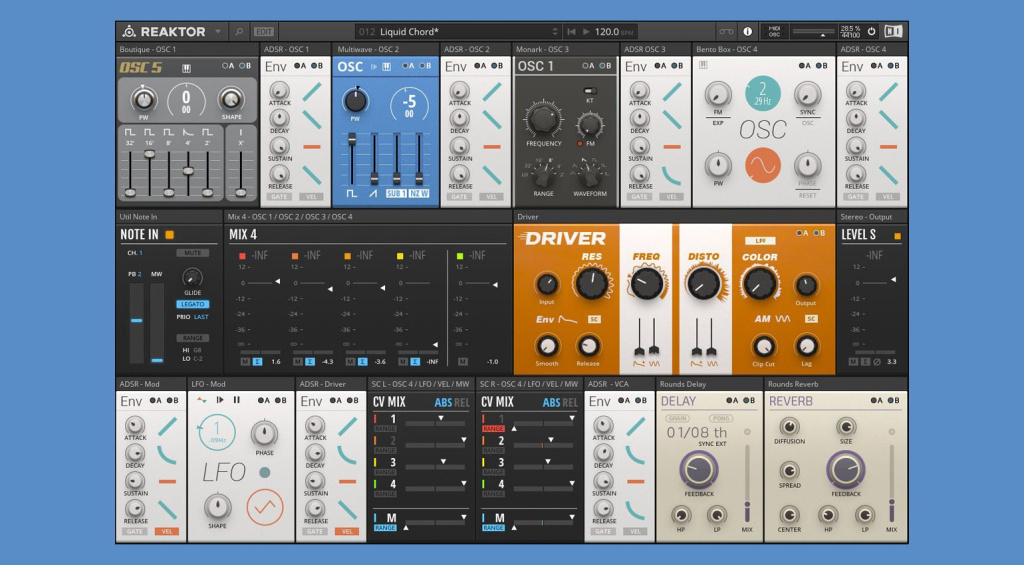
NI Reaktor 6* includes tools for controlling an external modular synth from a DAW through the Blocks environment.

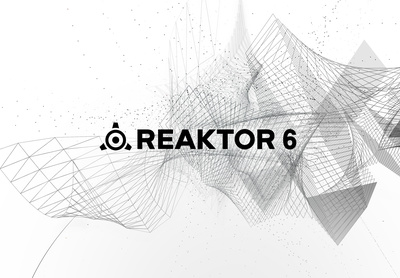
Spektro Audio CV Toolkit
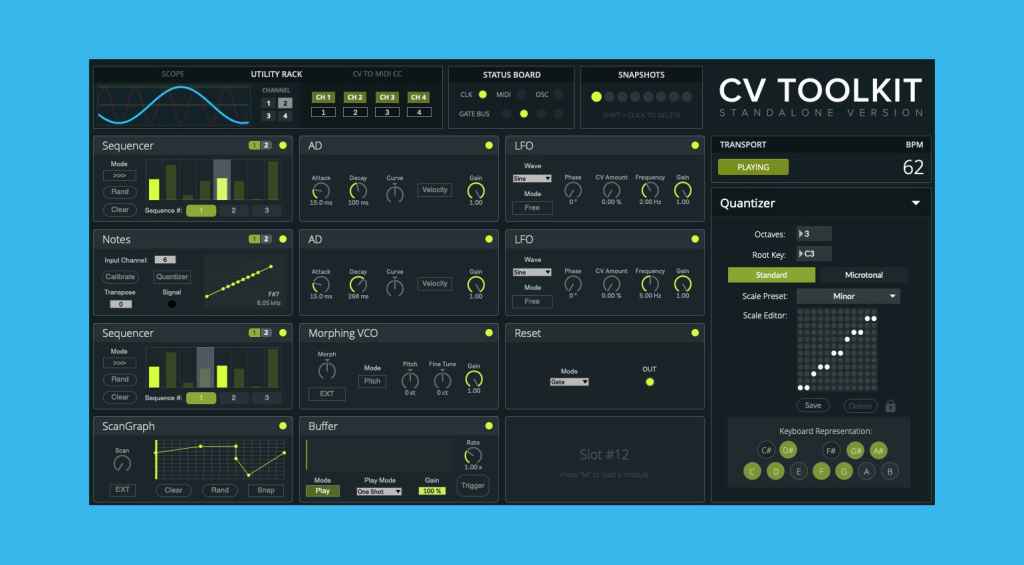
CV Toolkit is a standalone application for macOS and Windows that offers a suite of virtual modules for controlling and sequencing a modular system. Since CV Toolkit doesn’t run as a plugin in your DAW, it must be synced via Ableton Link or MIDI.
More about Modular Synths
- The Best Semi-Modular Synths for your Studio Setup
- Modular For Beginners: The Eurorack Starter Kit
- The Best Eurorack Drum Modules for your Synth Rig
- 5 Of The Best Budget Eurorack Modules: Building Synths from Scratch
- Eurorack Synthesizers: How modular has changed synths
One response to “How to Control a Modular Synth from a DAW (and Vice Versa)”

 4,1 / 5,0 |
4,1 / 5,0 | 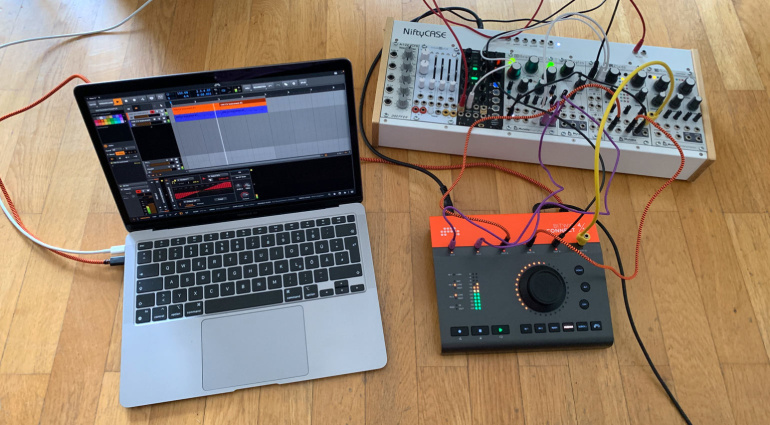


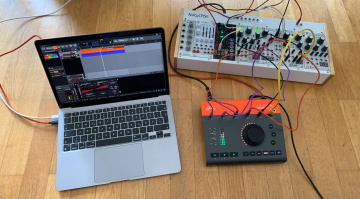

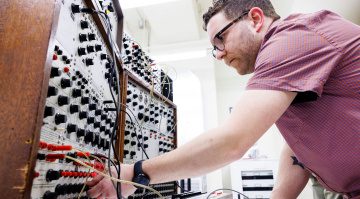

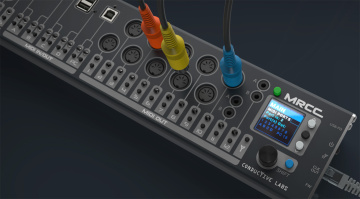
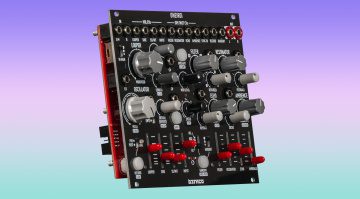

You missed the Intelijel MIDI 1U + CVx Expander in one of their cases or with MIDI IN Jcks module. The 1U adds 8 CV channels and up to 4 CVx expanders for 8 more CV channels each. Total 40 CV channels, if you need them.